This article delves into the ongoing debate between two iconic anime series, Naruto and Boruto, analyzing their themes, character development, and fan reception to determine which one reigns supreme.
Character Development in Naruto
Naruto showcases profound character arcs, with deep explorations of personal growth, friendships, and rivalries. The series masterfully illustrates how characters evolve, making it a beloved classic among fans of the shonen genre.
Character Development in Boruto
Boruto introduces a new generation, focusing on the challenges faced by the offspring of legendary characters. It explores their struggles and growth in a modernized ninja world, reflecting the complexities of contemporary youth.
Comparing Protagonists: Naruto vs. Boruto
- Naruto’s Journey from Outcast to Hero: Naruto’s transformation from a lonely outcast to a respected hero resonates with many viewers, emphasizing themes of perseverance and acceptance throughout his journey.
- Boruto’s Struggles with Legacy: Boruto grapples with the weight of his father’s legacy, seeking to carve his own path while dealing with the pressures of expectations and societal changes.
Themes and Messages in Naruto
- Friendship and Bonds: The series emphasizes the significance of friendships, showcasing how bonds can overcome obstacles and foster personal growth among characters.
- Perseverance and Hard Work: Naruto’s journey illustrates the power of hard work and determination, inspiring fans to pursue their dreams despite facing significant challenges.
Themes and Messages in Boruto
- Generational Conflict: Boruto highlights the differences between generations, showcasing how he and his peers navigate their identities in the shadow of their legendary parents.
- Technology’s Role in the Ninja World: The series examines the impact of technology on traditional ninja practices, raising questions about modernization and its effects on the values of the ninja community.
Fan Reception: Naruto vs. Boruto
- Critical Acclaim for Naruto: Naruto has received widespread acclaim for its storytelling, character development, and emotional depth, establishing it as a cornerstone of modern anime.
- Controversies Surrounding Boruto: Boruto faces criticism for its pacing and character choices, leading to debates among fans regarding its direction and the legacy it upholds from its predecessor.
Conclusion: Which Series Prevails?
Ultimately, the preference between Naruto and Boruto depends on individual tastes. Naruto is often celebrated for its timeless storytelling, while Boruto offers a fresh perspective on the next generation of ninjas.
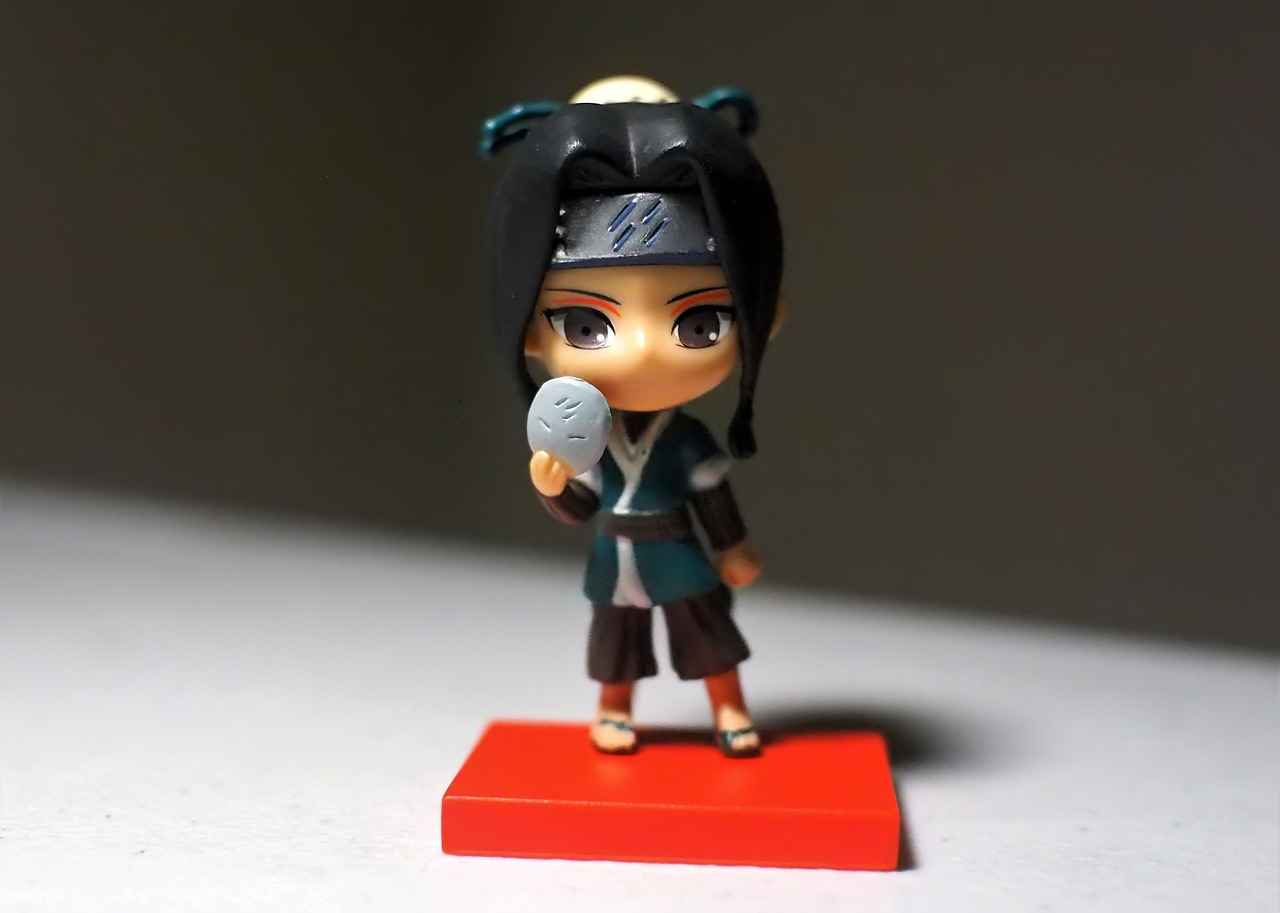
Character Development in Naruto
Naruto, a cornerstone of the shonen genre, is celebrated for its intricate and profound character arcs. The series delves deep into the journeys of its characters, exploring themes of personal growth, friendships, and rivalries. Each character’s development is not merely a backdrop but a driving force that shapes the narrative, making it a beloved classic among fans.
At the heart of Naruto’s story is the titular character, Naruto Uzumaki, whose transformation from an outcast to a hero resonates with audiences worldwide. His journey is marked by a relentless pursuit of acceptance and recognition, showcasing the importance of perseverance and the power of dreams. Through Naruto’s eyes, viewers witness the struggles of overcoming adversity, as he learns to embrace his flaws and turn them into strengths.
Moreover, the friendships formed throughout the series play a crucial role in character development. The bonds between Naruto and his peers, like Sasuke Uchiha and Sakura Haruno, illustrate how relationships can foster growth and understanding. These friendships are not without conflict; rivalries, particularly with Sasuke, add layers to their characters, pushing them to evolve and confront their inner demons.
The supporting cast also enriches the narrative, with characters like Kakashi Hatake and Hinata Hyuga providing diverse perspectives on growth and resilience. Each character’s backstory and motivations are explored in depth, allowing viewers to connect with them on a personal level.
In conclusion, Naruto’s exploration of character development is a testament to its enduring appeal. The series not only entertains but also inspires, reminding audiences of the importance of friendship, hard work, and the journey of self-discovery. Through its well-crafted characters, Naruto continues to leave a lasting impact on fans and the anime community alike.
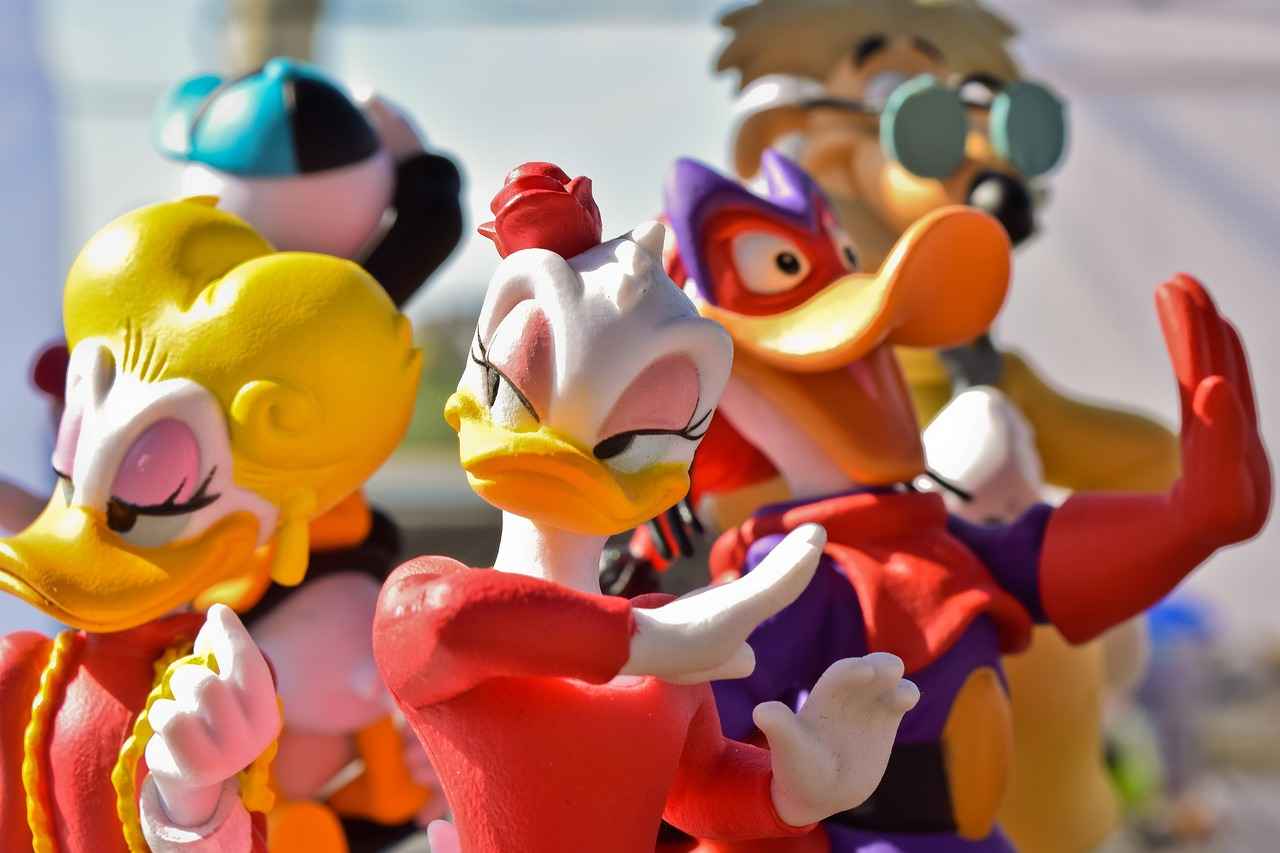
Character Development in Boruto
is a significant aspect of the series, as it delves into the lives of the next generation of ninjas. Unlike its predecessor, Boruto: Naruto Next Generations places a strong emphasis on the challenges faced by the children of legendary characters. The series explores their struggles, growth, and the impact of living in a world that has transformed due to modernization and technological advancements.
The character of Boruto Uzumaki serves as a focal point for this exploration. He is the son of Naruto Uzumaki, the Seventh Hokage, and is constantly grappling with the expectations that come with his father’s legacy. This internal conflict is a central theme throughout the series, as Boruto seeks to forge his own identity while dealing with the pressures of being the child of a celebrated hero.
- Struggles with Identity: Boruto often feels overshadowed by his father’s accomplishments, leading him to rebel against the traditional values of the ninja world. His journey reflects the struggle many young people face in establishing their own identities amidst familial expectations.
- Friendship Dynamics: The relationships Boruto forms with his peers, such as Sarada Uchiha and Mitsuki, play a crucial role in his development. These friendships are tested through various challenges, highlighting the importance of teamwork and trust.
- Modern Challenges: The introduction of advanced technology in the ninja world presents new dilemmas for Boruto and his friends. They must learn to balance their ninja skills with the conveniences of modern life, which often leads to conflicts between tradition and innovation.
Furthermore, Boruto’s character arc is complemented by the development of supporting characters, such as Sarada and Mitsuki, who each face their own unique challenges. Sarada, for instance, strives to become Hokage, motivated by her desire to prove herself and honor her heritage. Meanwhile, Mitsuki grapples with his identity as a synthetic being, exploring themes of existence and purpose.
In conclusion, not only highlights the personal growth of its characters but also reflects broader societal changes. The series effectively portrays the struggles of a new generation, making it relatable to viewers who are navigating their own challenges in an ever-evolving world.
Comparing Protagonists: Naruto vs. Boruto
In the world of anime, Naruto and its sequel, Boruto, present two vastly different protagonists, each shaped by their unique circumstances and personal motivations. This comparison explores their distinct traits and how these influence their respective narratives.
Naruto Uzumaki, the original protagonist, begins his journey as an outcast in the Hidden Leaf Village, driven by a desire for recognition and acceptance. His character development is marked by his unwavering perseverance and the bonds he forms with friends and mentors. Naruto’s journey from loneliness to becoming the Hokage serves as a powerful narrative arc, showcasing themes of friendship, determination, and the importance of understanding others.
In contrast, Boruto Uzumaki faces a different set of challenges. As the son of the famous Naruto, Boruto grapples with the weight of his father’s legacy while seeking to establish his own identity. His journey is characterized by a struggle against the expectations placed upon him, leading to a sense of rebellion against traditional values. Boruto’s character reflects contemporary themes of generational conflict and the quest for personal authenticity in a rapidly changing world.
Their contrasting personalities further highlight their journeys. Naruto embodies the archetypal hero, driven by a strong moral compass and a desire to protect his loved ones. In contrast, Boruto’s more rebellious nature showcases the challenges of living up to a legacy, as he often questions the decisions of the older generation.
In summary, while both Naruto and Boruto are shaped by their environments and personal motivations, their journeys reflect differing themes and challenges. Naruto’s story resonates with timeless values of hard work and friendship, while Boruto’s narrative addresses the complexities of modernity and the struggle for self-identity.
Naruto’s Journey from Outcast to Hero
Naruto Uzumaki’s evolution from a lonely outcast to a respected hero is one of the most compelling narratives in anime history. This journey resonates with many viewers, highlighting essential themes of perseverance and acceptance. From the very beginning, Naruto is portrayed as a misunderstood child, ostracized by his peers and burdened with the stigma of being the host of the Nine-Tails Fox.
Throughout the series, Naruto’s determination to be acknowledged drives him to work tirelessly, showcasing the power of hard work and resilience. His mantra, “I will never go back on my word,” reflects his unwavering commitment to his goals. This relentless pursuit not only transforms his own life but also inspires those around him. As Naruto gradually earns the respect of his village, he embodies the idea that acceptance is achievable through personal growth and genuine connections.
Moreover, Naruto’s relationships with key characters, such as Sasuke and Sakura, further illustrate his journey. His rivalry with Sasuke, in particular, serves as a catalyst for his development. Initially seen as a competitor, Sasuke’s eventual return and acknowledgment of Naruto’s strength emphasizes the importance of friendship and camaraderie. These relationships highlight that true strength lies not only in individual prowess but also in the bonds we forge with others.
In conclusion, Naruto’s transformation is a powerful narrative arc that emphasizes the importance of perseverance and acceptance. His journey from being an outcast to a hero serves as a beacon of hope for many, reminding us that with determination and the support of friends, we can overcome even the most daunting challenges.
Boruto’s Struggles with Legacy
delve into the complex emotions and challenges faced by the young ninja, Boruto Uzumaki, as he navigates the expectations set by his illustrious father, Naruto. As the son of the Seventh Hokage, Boruto grapples with the immense pressure to uphold his father’s legacy while yearning to establish his own identity in a rapidly evolving world.
Throughout the series, Boruto’s journey is marked by a constant struggle between inheritance and individuality. He is often viewed through the lens of his father’s achievements, which creates a burden that he must learn to bear. This conflict is further complicated by the societal changes surrounding him, where the traditional values of the ninja world are challenged by modern technology and new lifestyles.
- Expectation vs. Desire: Boruto’s desire to forge his own path often clashes with the expectations of those around him, leading to feelings of resentment and frustration.
- Generational Conflict: He must navigate the complexities of being a child of a hero while trying to understand the legacy he inherits.
- Modernization: The introduction of technology in the ninja world presents both opportunities and challenges, forcing Boruto to reconcile the past with the present.
As Boruto interacts with his peers and mentors, he learns valuable lessons about friendship, loyalty, and the importance of carving out his own identity. His journey emphasizes that while legacies can shape us, they do not have to define us.
In conclusion, Boruto’s struggles with legacy resonate with many viewers, reflecting the universal challenge of living up to expectations while seeking personal fulfillment. His story serves as a powerful reminder that every generation must find its own path, even when weighed down by the shadows of those who came before.
Supporting Characters: Strengths and Weaknesses
In both Naruto and Boruto, the supporting characters are not merely sidekicks; they are integral to the narrative, shaping the protagonists’ journeys and enriching the overall story. Their strengths and weaknesses often reflect the main themes of each series, providing a deeper understanding of the challenges faced by the heroes.
- Team 7 in Naruto: The original Team 7, consisting of Naruto, Sasuke, and Sakura, showcases diverse strengths. Kakashi, their mentor, brings wisdom and experience, guiding them through their emotional and physical battles. Each member’s weaknesses, such as Naruto’s impulsiveness or Sakura’s struggle with self-doubt, allow for significant character growth and development.
- New Generation in Boruto: In Boruto, the new Team 7, featuring Boruto, Sarada, and Mitsuki, faces their own set of challenges. Each character has unique abilities and backgrounds, which influence their interactions. Sarada’s determination and Mitsuki’s loyalty contrast with Boruto’s struggle against his father’s legacy, creating a compelling dynamic.
- Antagonists and Allies: Both series present a variety of supporting characters who oscillate between friend and foe. Characters like Orochimaru, who initially appears as a villain, evolve into complex figures that aid the protagonists, demonstrating that strength can come from unexpected places.
The supporting cast also highlights the themes of friendship and loyalty. Characters like Rock Lee and Hinata in Naruto, and Kawaki in Boruto, exemplify how bonds can empower the main characters, pushing them to overcome their personal struggles. These relationships are crucial, as they provide emotional support and motivation, ultimately influencing the protagonists’ decisions and growth.
In conclusion, the supporting characters in both Naruto and Boruto play pivotal roles that enhance the storytelling. Their strengths and weaknesses not only contribute to the protagonists’ development but also reflect the underlying themes of each series, making them essential to the overall narrative.
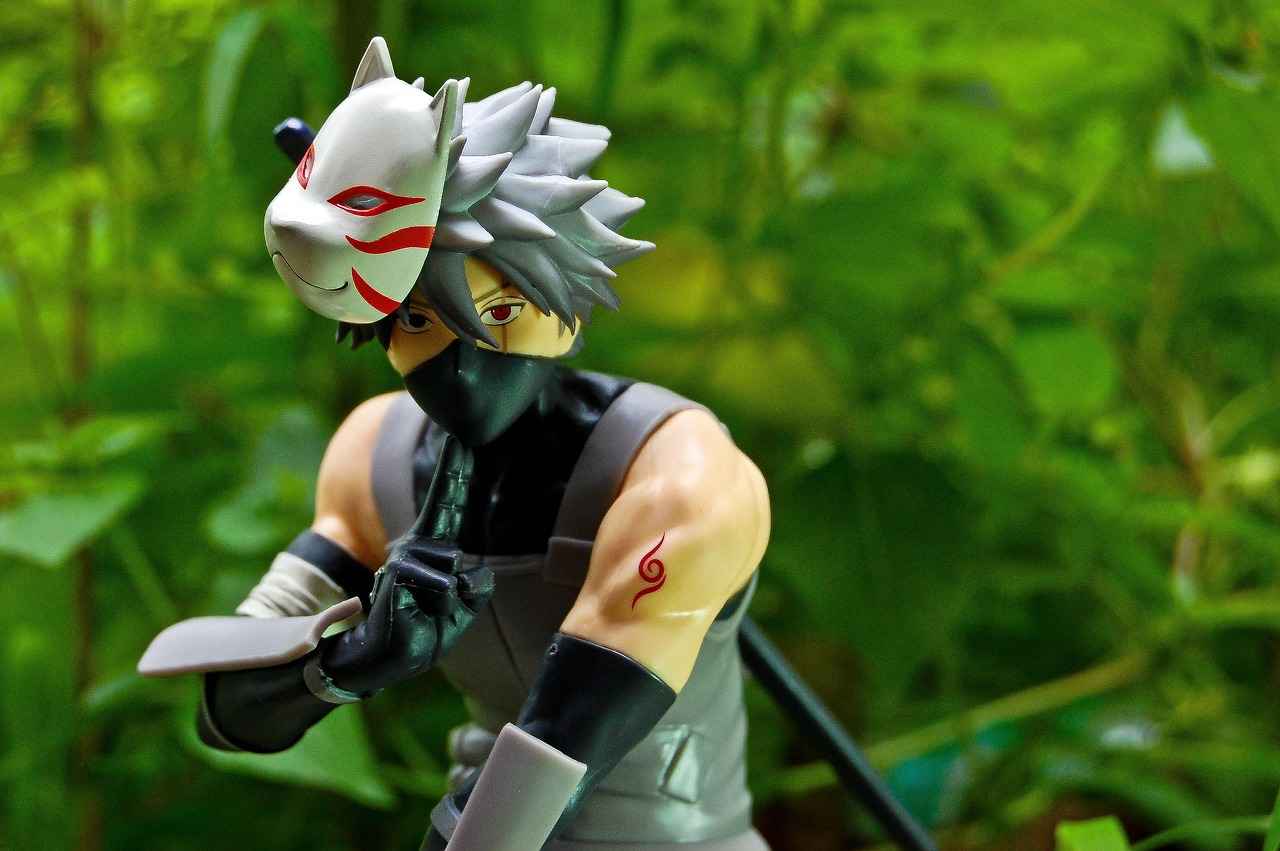
Themes and Messages in Naruto
Naruto is a series that resonates deeply with audiences, primarily due to its rich tapestry of themes and messages. The narrative weaves together the vital elements of friendship, perseverance, and the need for understanding one’s adversaries, creating a profound impact on its viewers.
At the heart of Naruto’s journey is the theme of friendship. The bonds formed between characters serve as a cornerstone of the story, illustrating how support and camaraderie can help individuals overcome significant challenges. This theme is particularly evident in Naruto’s relationships with his friends and mentors, who play pivotal roles in his development and growth.
Another critical theme is perseverance. Naruto’s relentless pursuit of his dreams, despite facing numerous obstacles, serves as an inspiring example for viewers. His journey from being an outcast to becoming a respected leader emphasizes the importance of hard work and determination. This message encourages fans to strive for their goals, no matter how daunting they may seem.
Furthermore, the series delves into the significance of understanding one’s enemies. Naruto learns that comprehension and empathy can transform conflicts into opportunities for growth and reconciliation. This theme teaches audiences that even adversaries can teach valuable lessons, fostering a more profound understanding of human nature.
| Theme | Description |
|---|---|
| Friendship | The importance of bonds and support systems in personal growth. |
| Perseverance | The value of hard work and determination in achieving dreams. |
| Understanding Enemies | The benefits of empathy and comprehension in conflict resolution. |
In conclusion, Naruto’s exploration of these themes not only enhances its narrative but also leaves a lasting impression on its audience. By highlighting the power of friendship, the necessity of perseverance, and the importance of understanding others, Naruto continues to inspire and resonate with fans around the globe.
Friendship and Bonds
are central themes in many narratives, and they hold a particularly significant place in the world of Pokémon. The Pokémon franchise not only emphasizes the importance of these relationships between trainers and their Pokémon but also showcases how these bonds can lead to profound personal growth and resilience in the face of adversity.
Throughout the Pokémon series, we see trainers embarking on journeys that are often fraught with challenges. These challenges serve as a backdrop for the development of friendships, not only between trainers and their Pokémon but also among trainers themselves. As they navigate their quests, the characters learn valuable lessons about teamwork, loyalty, and trust. Friendships are depicted as a source of strength, allowing characters to overcome obstacles that might seem insurmountable alone.
For instance, consider the bond between Ash and Pikachu. Their relationship is a testament to the idea that true friendship can enhance one’s abilities and foster personal growth. Pikachu’s unwavering support and loyalty to Ash inspire him to push beyond his limits, illustrating how strong bonds can lead to remarkable achievements. This dynamic resonates with viewers, making the series relatable and engaging.
Moreover, the series often portrays the struggles that come with maintaining friendships. Conflicts arise, misunderstandings occur, and challenges test the strength of these bonds, reflecting real-life experiences. Such portrayals make the characters’ journeys more authentic and relatable, allowing viewers to see themselves in these narratives.
In conclusion, the emphasis on in Pokémon serves not only to entertain but also to impart important life lessons about the value of connection and support. These themes resonate deeply with audiences, reinforcing the idea that together, we can overcome any challenge.
Perseverance and Hard Work
are central themes in both the Naruto and Boruto series, showcasing the importance of dedication and resilience in achieving one’s goals. These narratives resonate deeply with audiences, providing powerful lessons that extend beyond the world of ninjas.
Naruto Uzumaki, the protagonist of the original series, embodies these themes through his relentless pursuit of becoming Hokage, despite facing numerous obstacles. His journey from being an outcast to a respected leader illustrates that hard work and unwavering determination can lead to remarkable transformations. Naruto’s character development is a testament to the idea that anyone, regardless of their background, can achieve greatness through perseverance.
In contrast, Boruto Uzumaki, Naruto’s son, grapples with the legacy of his father’s accomplishments. While Boruto initially struggles with the pressure of living up to expectations, he learns that perseverance is not just about hard work, but also about understanding oneself and finding a unique path. This generational conflict adds depth to his character, as he navigates the challenges of modernity and the weight of his family name.
| Character | Key Traits | Lessons Learned |
|---|---|---|
| Naruto Uzumaki | Determined, Resilient, Friendly | Hard work pays off; Never give up on your dreams. |
| Boruto Uzumaki | Rebellious, Introspective, Evolving | Understand your identity; Forge your own path. |
Both characters, through their respective journeys, emphasize that perseverance and hard work are essential not only in the realm of ninjas but also in real life. They inspire fans to chase their dreams, reminding us that the road to success is often paved with challenges and setbacks.
Ultimately, the messages conveyed through their stories serve as motivation for viewers, encouraging them to embrace their struggles and continue to strive for their aspirations, no matter how daunting they may seem.
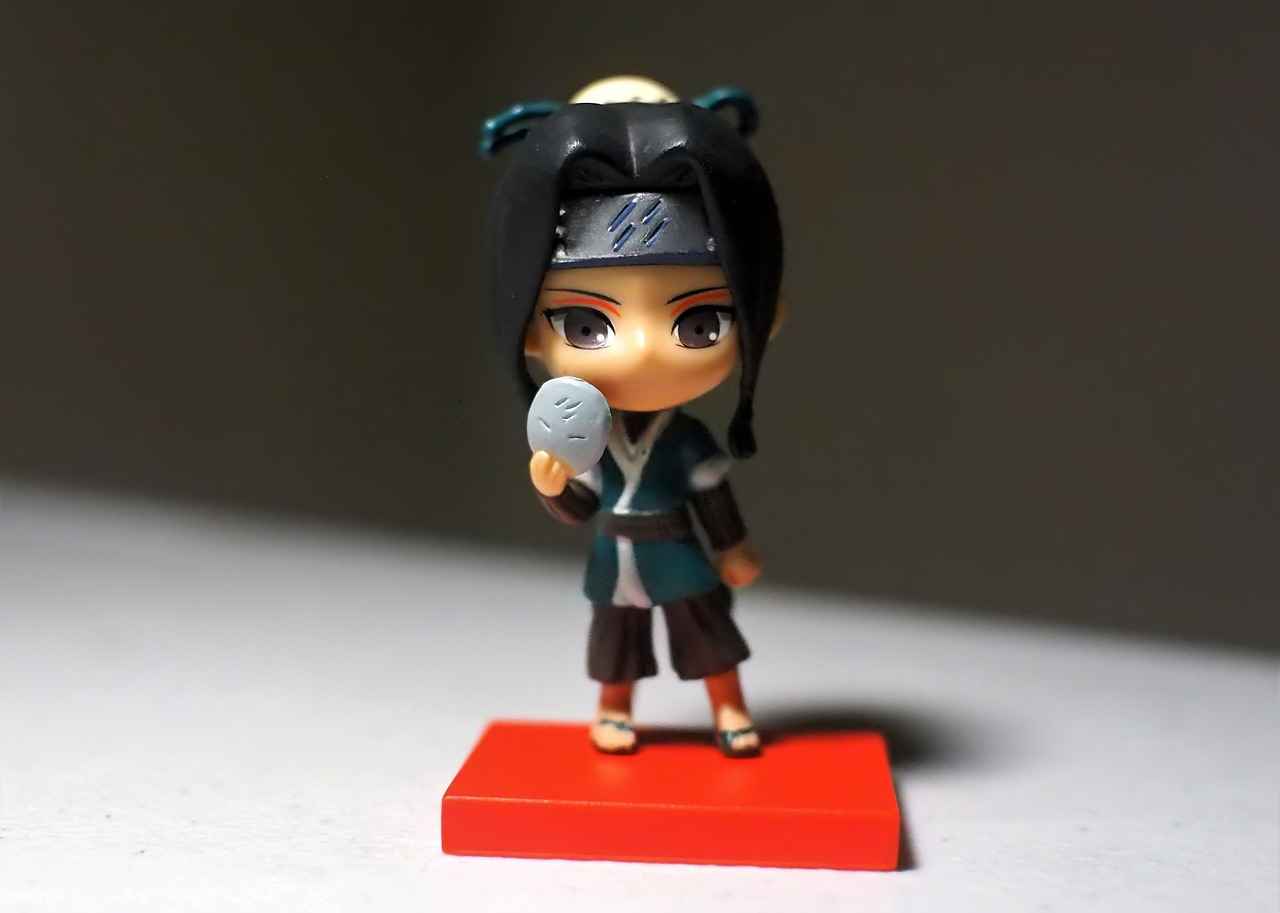
Themes and Messages in Boruto
Boruto: Naruto Next Generations delves into a myriad of contemporary issues that resonate with today’s youth, such as technology, generational conflict, and the search for identity. These themes reflect the challenges faced by young individuals in a rapidly evolving world, making the series relevant and relatable.
One of the most striking themes in Boruto is the impact of technology on the traditional ninja world. The series showcases how advanced tools and gadgets have transformed the way ninjas operate, raising questions about the balance between modernization and the preservation of age-old values. This thematic exploration encourages viewers to consider how technology shapes their own lives and relationships.
Additionally, generational conflict plays a pivotal role in Boruto’s narrative. The series highlights the struggles faced by young ninjas like Boruto as they navigate their identities while living in the shadows of their legendary parents. This conflict not only emphasizes the pressures of expectations but also the desire for independence and self-discovery. It resonates with many young viewers who grapple with their own familial legacies.
The search for identity is another central theme in Boruto. As characters strive to define themselves amidst societal changes, they confront questions about who they are and who they want to be. This journey of self-exploration is portrayed through various arcs, allowing audiences to connect with the characters’ struggles and triumphs.
In conclusion, Boruto effectively addresses contemporary issues that mirror the experiences of today’s youth. By exploring themes of technology, generational conflict, and identity, the series provides a rich narrative that encourages reflection and discussion among its viewers.
Generational Conflict
is a central theme in the anime series Boruto, highlighting the challenges faced by the younger generation as they strive to establish their own identities while living in the shadow of their legendary parents. This dynamic creates a rich narrative that resonates with audiences, particularly those who have experienced similar struggles in their own lives.
In Boruto, the protagonist Boruto Uzumaki is the son of Naruto Uzumaki, the Seventh Hokage. While Naruto’s journey was defined by his quest for recognition and acceptance, Boruto grapples with the immense expectations placed upon him due to his father’s legacy. He often feels overshadowed by Naruto’s accomplishments, leading to a sense of rebellion and a desire to prove himself as an individual.
The series effectively illustrates the differences between generations through the interactions between Boruto and his peers, as well as with their parents. For instance, Boruto’s friend Sarada Uchiha, the daughter of Sasuke Uchiha and Sakura Haruno, also faces the burden of expectations. This generational conflict is not only about living up to the past but also about navigating the complexities of a modernized ninja world where technology and traditional values often clash.
| Character | Parental Legacy | Struggle |
|---|---|---|
| Boruto Uzumaki | Naruto Uzumaki | Proving his own worth |
| Sarada Uchiha | Sasuke Uchiha | Finding her own path |
| Mitsuki | Orochimaru | Understanding his identity |
Moreover, Boruto’s journey raises questions about the impact of technology on traditional ninja practices. As the ninja world evolves, so do the expectations of the younger generation. Boruto and his friends must learn to adapt to new challenges while honoring their heritage, creating a narrative that is both timely and relevant.
In conclusion, the exploration of generational conflict in Boruto not only deepens character development but also reflects real-world issues faced by today’s youth. By navigating their identities amidst the legacies of their parents, Boruto and his peers embody the struggles of finding one’s place in a rapidly changing world.
Technology’s Role in the Ninja World
The Boruto series delves deeply into the intersection of technology and traditional ninja practices, sparking a vital conversation about modernization and its implications for the ninja community. As the world evolves, so too do the tools and methods utilized by ninjas, leading to significant shifts in their values and skills.
In contrast to the classic Naruto series, where ninjas relied heavily on their innate abilities, Boruto introduces advanced technologies that reshape how battles are fought and how missions are conducted. This transformation raises several critical questions:
- How does technology enhance or detract from a ninja’s abilities?
- What values are at risk of being lost in this technological shift?
- Can the essence of being a ninja remain intact in a world dominated by gadgets?
One of the most notable advancements in Boruto’s world is the introduction of scientific ninja tools. These tools allow ninjas to execute complex jutsu with ease, but they also create a dependency that can undermine traditional training methods. For instance, characters like Boruto Uzumaki and his peers often utilize these tools in their missions, leading to debates about their effectiveness compared to conventional techniques.
Moreover, the reliance on technology has sparked a generational conflict, as older ninja, including characters from the original series, express concern over the dilution of core values such as hard work and perseverance. This tension highlights the struggle between embracing modernity and preserving the rich heritage of the ninja way.
In conclusion, while technology presents exciting opportunities for growth and efficiency within the ninja world, it also poses challenges that the community must navigate carefully. As Boruto continues to unfold, the ongoing dialogue about the balance between tradition and innovation remains a central theme, inviting viewers to reflect on the true essence of being a ninja.

Fan Reception: Naruto vs. Boruto
The reception of both series varies significantly, with Naruto often hailed as a classic, while Boruto garners mixed reviews. This disparity has led to extensive discussions about each series’ place in the franchise’s legacy. Fans of Naruto frequently praise its deep character development and emotional storytelling, which resonate with audiences even years after its conclusion. The series is celebrated for its ability to connect with viewers through themes of friendship, perseverance, and the journey of self-discovery.
In contrast, Boruto’s reception has been more polarized. While some fans appreciate the new generation’s adventures and the modernized ninja world, others express dissatisfaction with the pacing and character development. Critics argue that Boruto lacks the emotional depth of its predecessor, leading to a divide among fans. Many feel that the series struggles to establish its identity, often overshadowed by the legacy of Naruto.
Furthermore, discussions about Boruto often center around its portrayal of legacy. Boruto, the son of Naruto, grapples with the expectations placed upon him, creating a narrative that reflects the challenges of living up to a parent’s achievements. This theme resonates with younger audiences, who may relate to the pressures of familial expectations in their own lives.
Ultimately, the fan reception of Naruto and Boruto highlights the complexities of legacy in storytelling. While Naruto is celebrated for its timeless narrative and character arcs, Boruto’s mixed reviews reflect the challenges of continuing a beloved franchise in a way that resonates with both new and old fans. As the debate continues, both series hold a significant place in the hearts of their audiences, each contributing uniquely to the world of anime.
Critical Acclaim for Naruto
Naruto has garnered immense recognition and praise throughout its run, establishing itself as a significant milestone in the world of anime. With its intricate storytelling, well-developed characters, and deep emotional resonance, it has captivated audiences worldwide. The series skillfully intertwines themes of friendship, perseverance, and personal growth, making it relatable to a diverse fanbase.
One of the most commendable aspects of Naruto is its ability to create complex characters that evolve over time. The protagonist, Naruto Uzumaki, begins his journey as an outcast, striving for acceptance and recognition. His development from a misunderstood child to a revered hero is not only inspiring but also highlights the importance of resilience and determination. This transformation resonates with viewers, encouraging them to pursue their dreams despite the challenges they may face.
Additionally, the series delves into the backgrounds and motivations of its supporting characters, enriching the narrative. Characters like Sasuke Uchiha and Sakura Haruno each have their own arcs that contribute to the overall story, showcasing the impact of their relationships with Naruto. This depth of character development is a hallmark of Naruto, distinguishing it from many other anime series.
The emotional depth of Naruto is further enhanced by its exploration of themes such as friendship and forgiveness. The bonds formed between characters serve as a driving force in the story, demonstrating how connections can help overcome adversity. The series encourages viewers to understand and empathize with others, fostering a sense of community and support.
In conclusion, Naruto stands as a cornerstone of modern anime, not just for its thrilling battles and action sequences but for its profound storytelling and character arcs. Its critical acclaim is a testament to its lasting impact on the anime community and its ability to resonate with audiences of all ages.
Controversies Surrounding Boruto
The anime series Boruto: Naruto Next Generations has sparked significant debate among fans since its debut. While it aims to continue the legacy of its predecessor, Naruto, it has faced criticism for various reasons, particularly its pacing and character choices.
Criticism of Pacing
One of the most prevalent criticisms of Boruto is its pacing. Many fans feel that the story progresses too slowly, with filler episodes and arcs that do not contribute meaningfully to the overall narrative. This has led to frustration among viewers who are eager for character development and plot progression. The contrast with Naruto, which was known for its engaging and fast-paced storytelling, has only intensified these concerns.
Character Choices and Development
Another significant point of contention is the character choices made in Boruto. Some fans argue that the new generation of characters lacks the depth and complexity of their predecessors. For example, Boruto himself is often viewed as a less compelling protagonist compared to Naruto, which raises questions about the direction of the series. Additionally, the portrayal of legacy characters, such as Sasuke and Sakura, has also drawn mixed reactions, as fans reminisce about their development in the original series.
Fan Reactions and Divided Opinions
The reaction from the fanbase has been divided. While some appreciate the modern take on the ninja world and the introduction of new themes, others feel that Boruto fails to capture the essence of what made Naruto so beloved. This division has led to heated discussions on various platforms, where fans express their hopes for the series to improve and better honor the legacy of Naruto.
In conclusion, while Boruto continues to evolve, it remains under scrutiny for its pacing and character development choices. The ongoing debates among fans reflect the passion and investment they have in the Naruto franchise, highlighting the challenges faced by sequels in living up to their predecessors.
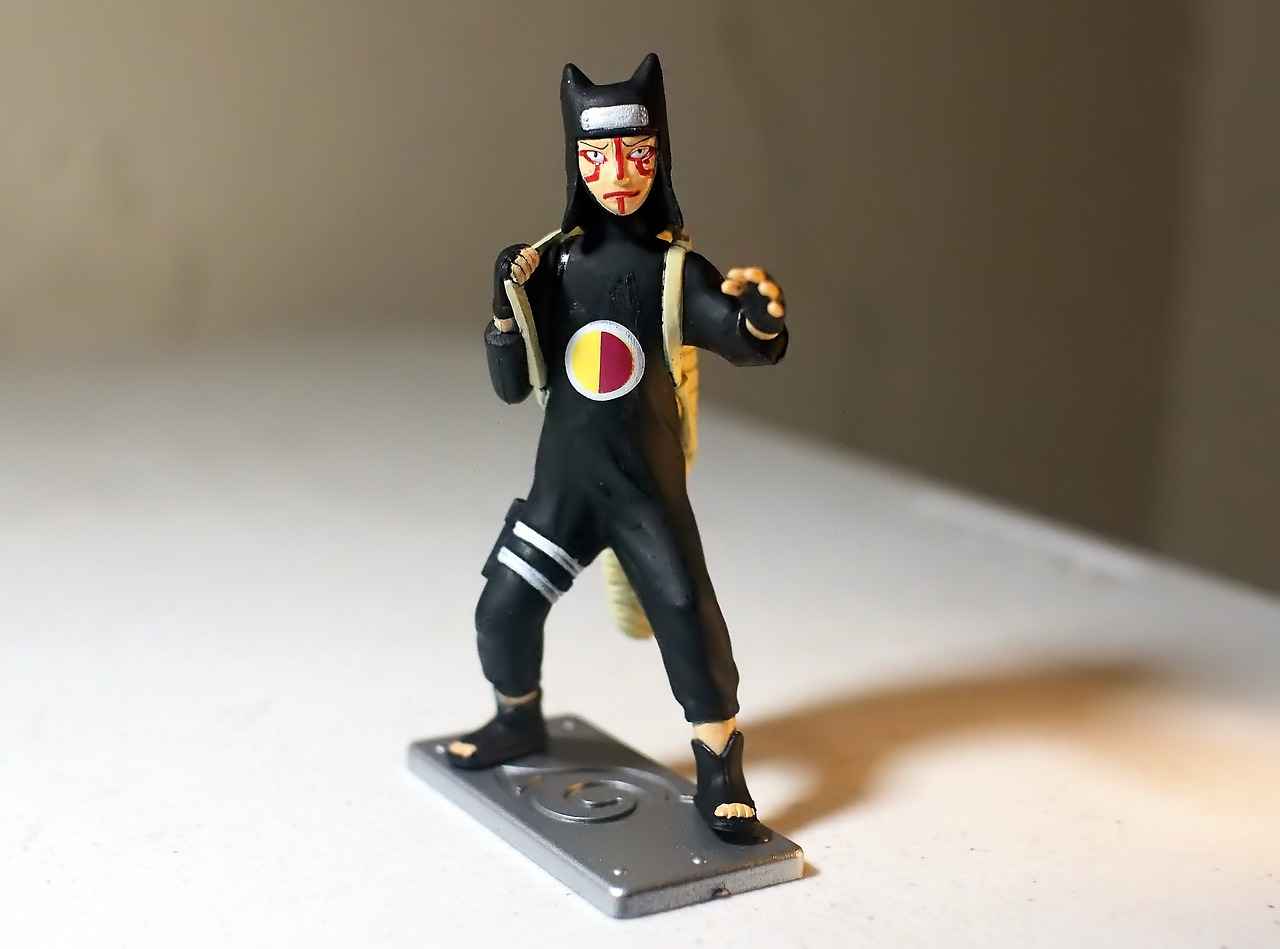
Conclusion: Which Series Prevails?
Naruto vs. Boruto: Which Series is Better?
The debate between Naruto and Boruto continues to captivate fans of the anime and manga community. While both series share a common universe, they cater to different audiences and explore varied themes. Ultimately, the preference between these two iconic series hinges on individual tastes and expectations.
Understanding the Appeal of Naruto
Naruto is often celebrated for its timeless storytelling. The series intricately weaves themes of friendship, perseverance, and the importance of understanding one’s enemies. Viewers resonate with Naruto’s journey from an outcast to a revered hero, making it a classic in the shonen genre. Its character development is profound, offering deep explorations of personal growth and relationships that leave a lasting impact on its audience.
Boruto’s Fresh Perspective
On the other hand, Boruto provides a fresh perspective on the next generation of ninjas. While it inherits the rich legacy of its predecessor, it also tackles contemporary issues, such as generational conflict and the integration of technology into the ninja world. Boruto’s struggles with his father’s legacy and his quest for identity reflect the challenges faced by today’s youth, making it relatable to a new generation of viewers.
Fan Reception and Legacy
The reception of both series varies significantly. Naruto is hailed as a classic, often praised for its engaging narrative and character arcs. In contrast, Boruto has faced mixed reviews, with some fans appreciating its modern approach while others criticize its pacing and character choices. This divergence in reception fuels ongoing discussions about each series’ place in the franchise’s legacy.
Conclusion: A Matter of Personal Preference
Ultimately, the choice between Naruto and Boruto boils down to individual preference. While Naruto is celebrated for its emotional depth and classic storytelling, Boruto offers a unique viewpoint on the next generation of ninjas, making it a compelling watch for those seeking a different narrative experience.
